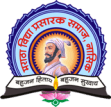Name of the Department: Political Science
Year of Establishment:1984
Programs Offered: B A
Pattern of Teaching Learning and Evaluation:
Annual/ semester/choice based credit system (programme wise)
| Annual / Semester | Credit system |
| T.Y.B.A. | F.Y.BA / S.Y.B.A. |
| UG | Other |
| B.A. | Additional 4 credit courses for UG students
– Democracy, Election and Governance = 2 Credits – Basics of Indian Constitution = 2 Credits – M.Com ,M.A – Introduction to Constitution = 2 Credits |
| B.A | Other |
About the Department |
The department of Political Science started since the establishment of the college in 1984. It has a devoted faculty, committed to the high standards of teaching. The courses belong to either Human Right.The department’s commitment to basic and applied teaching encourages students to go for higher education as well as for Research activities. Besides, Political Science is one of the major subjects in various competitive examinations and hence, students find it useful to study for the preparation of the same. The department offers Special courseat undergraduate level. Along with the conventional methods of teaching, LCD, OHP, internet, maps, charts are used for making the teaching more effective. Open discussions and feedbacks from the students provide further scope for upgradation. In addition to class room learning,excursions, library, internet, seminars, guest lectures are the other means of learning in the department. The effective methods like group discussions, seminars, assessment of journals, tests, tutorials are helpful to evaluate the students.
Vision |
“To inculcate moral values, ethics and character among students, who will be good citizens of India and to motivate the students to understand the concept of politics”
Mission |
“To create awareness of Democratic values and political rights among students for National Integration”.
Goals |
- To inculcate basic Human values like Democracy, Equality and Fraternity among students.
- To attempt to make students’ aware of social Justice.
- To attempt to increase the participation of students’ in Local-Self Government.
POs/COs/PSOs |
Bachelor of Arts in Political Science
Course Outcome:
- F.Y.B.A. 2019-Credit Pattern
Introduction To Indian Constitution -I
Introduction To Indian Constitution -II
- To acquaint students with the important features of the Constitution of India and with The basic framework of Indian government.
- To familiarize students with the working of the Constitution of India.
2) S. Y. B. A. 2019 (Credit Pattern)
Sem-III & IV
1.An Introduction to Political Ideologies (G-2)
- Role of different political ideologies and their impact in politics
- Close link between an idea and its actual realization in public policy
- Legacy of all the major ideologies
2.Western Political Thought (S-1)
- Major traditions of thought that have shaped political discourse in different parts of the world.
- The great diversity of social contexts and philosophical visions.
- The history of political thought as a series of critical, interconnected and open-ended conversations about the ends and means of the good life.
3.Political Journalism (S-2)
- Complex relationship between the communication, media and power politics.
- Critical appraisal of practices of political image management, campaigns, propaganda and censorship.
- Indian context of political Journalism
- T. Y. B. A. 2019 (Credit Pattern)
Sem- V & VI
- MODERN POLITICAL ANALYSIS (G-3)
This course will introduce the overall scope of the sub-discipline of Modern Political Analysis. The focus of the course will be on the Modern Political Analysis of power. The emphasis is on the nature of power in modern societies- more in the form of organizations and social formations than as individual power. Students are also expected to understand different forms of justifications of power and the role of ideology in this regard. State will be studied as a repository of power in society while class and patriarchy are two instance of how the nature of power is shaped by social factors
.2.Public Administration (S-3)
This paper is an introductory course in Public Administration. The essence of Public Administration lies in its effectiveness in translating the governing philosophy into programmes, policies and activities and making it a part of community living. The paper covers personnel public administration in its historical context thereby proceeding to highlight several of its categories, which have developed administrative salience and capabilities to deal with the process of change. The recent developments and particularly the emergence of New Public Administrations are incorporated within the larger paradigm of Democratic legitimacy. The importance of legislative and judicial control over administration is also highlighted
- International Relation (S-4)
This paper deals with concepts and dimensions of International Relations and makes an analysis of different theories highlighting the major debates and differences within the different theoretical paradigms. The dominant theories of power and the question of equity and justice, the different aspects of balance of power leading to the present situation of a unipolar world are included. It’s highlights various aspects of conflict and conflicts resolution, collective security and in the specificity of the long period of the post second world war phase of the cold war, of Detent and Deterrence leading to theories of rough parity in armaments.
- Extra Credits Compulsory Course
- Y. B.A./ F. Y. B. Com. / F. Y. Bsc. (Credit Pattern)
Democracy, Election and Governance (2 Credits)
- To introduce the students meaning of democracy and the role of the governance.
- To help them understand the various approaches to the study of democracy and governance.
5.M.A. –II, Sem-III (Credit Pattern)
Introduction to Constitution (2 Credits)
- To acquaint students with the important features of the Constitution of India and with The basic framework of Indian government.
- To familiarize students with the working of the Constitution of India.

